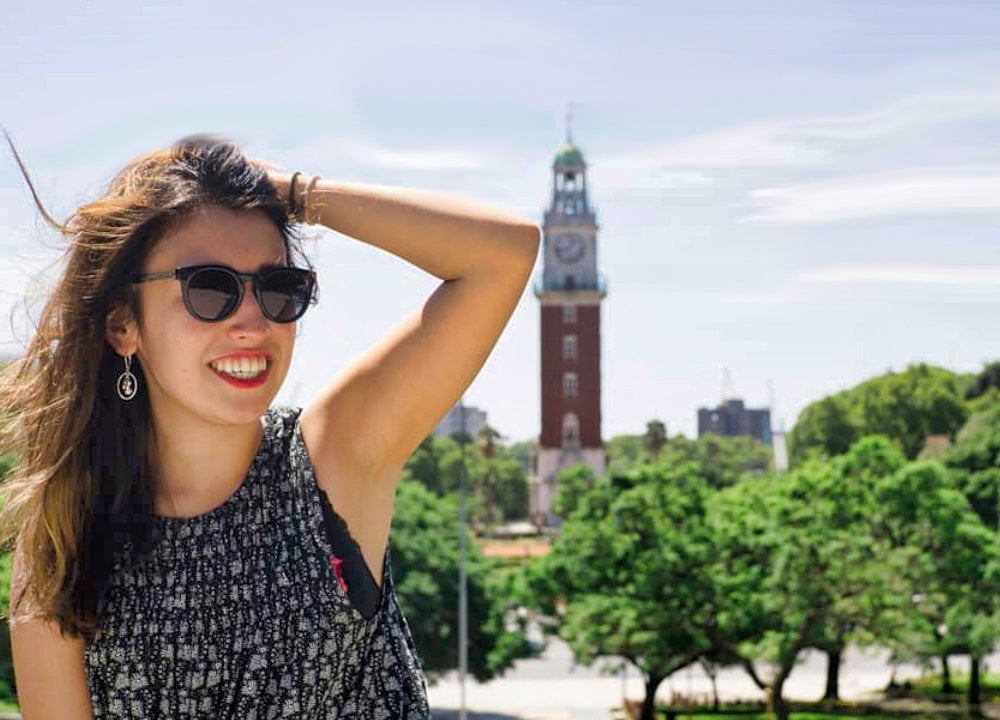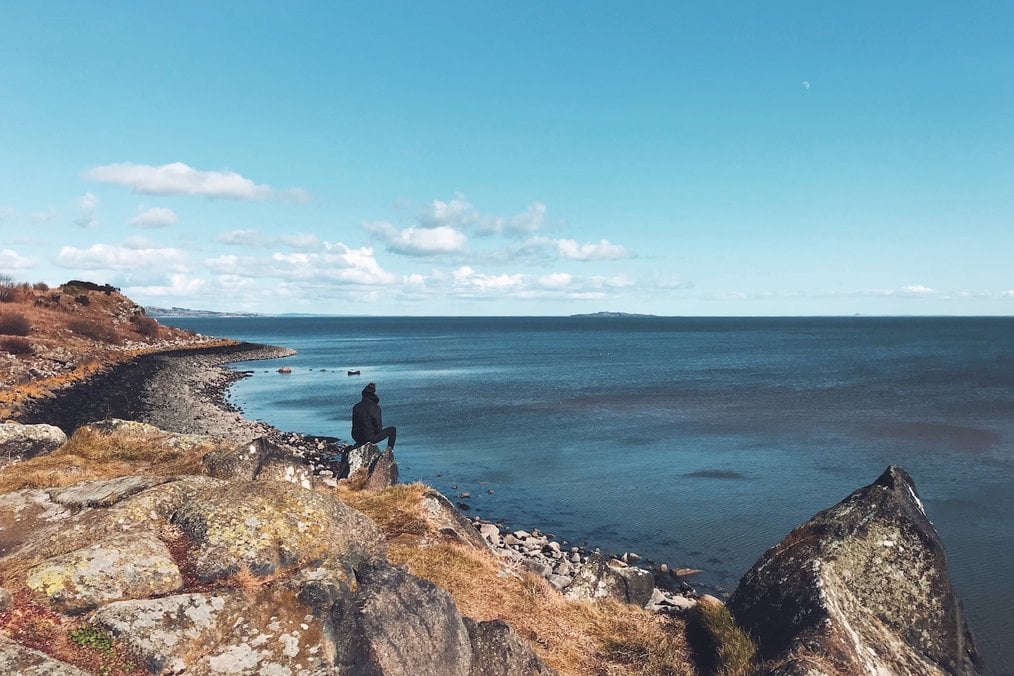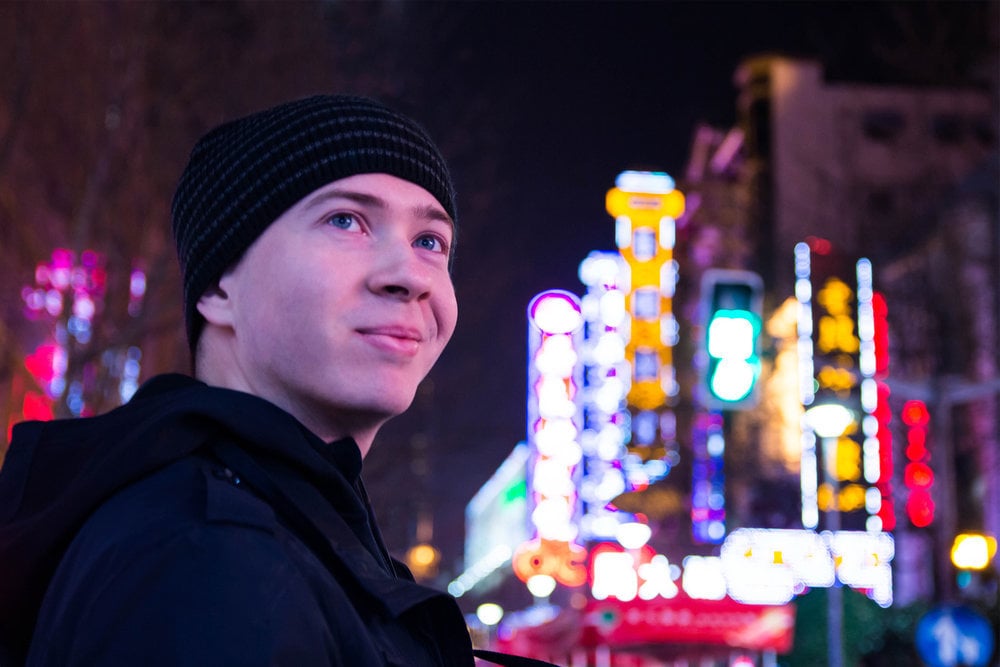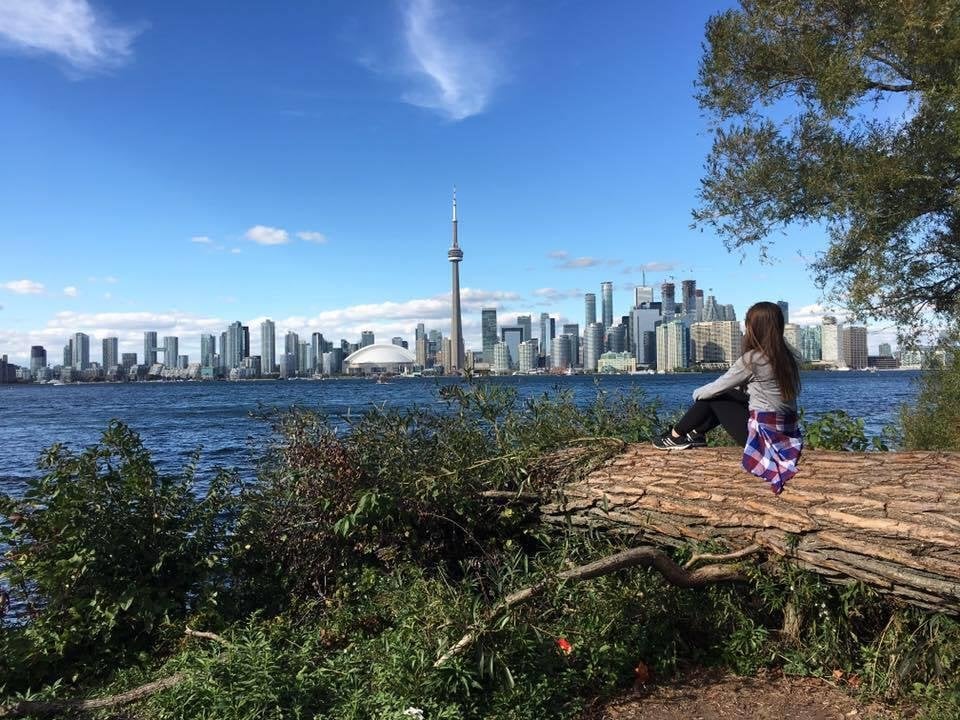How to Deal With Reverse Culture Shock After Studying Abroad
You've probably experienced culture shock when traveling abroad but did you know you can get reverse culture shock after returning to your home country? Learn about how to cope with reverse culture shock after your study abroad program.

We’ve all heard of culture shock: the emotional difficulties that come hand in hand with immersion in another culture. But coming home after studying abroad? That must be a refreshing welcome to all that is comfortable and familiar... right? Or is it?!
You’re back home. Things are different, and it’s hard to readjust. You’re probably missing your life abroad -- the people you met, the food you ate, and the way of life. You may have trouble relating to people at home. It’s possible you’re feeling bored, lost, and confused about your future goals.
If you've studied abroad it is likely that your return home may be an even tougher adjustment than going overseas in the first place! What can you do to get out of this rut? Read on to learn about reverse culture shock and how you can successfully deal with it.
What is reverse culture shock?

Just as studying abroad demanded a number of lifestyle changes, so too does returning home. The person you are now returning from abroad is not the same person who left in the first place. You have been transformed intellectually and personally, and have successfully functioned in a culture entirely different from your own. You have new habits, values, and ideas, sometimes without even realizing it!
Family, friends, and neighbors may find it difficult to comprehend the changes you have been through and may expect you to be the same person that left. It can be difficult for them to understand your whole transformative experience, and you may find it hard to balance fulfilling old roles and breaking in new ones. This strain and stress can sometimes invoke a sense of helplessness or a loss of identity. This is what we call reverse culture shock, where you’re learning who you are and how you fit into your culture after returning home from study abroad.
It's not all as bad as it sounds. As long as you have an understanding of what you're going through, it's safe to say that not only will you push through these confusing and difficult times, but will, in fact, come out on top.
The stages of reverse culture shock

While the stages of culture shock might seem complicated -- it turns out that reverse culture shock is even more of an emotional rollercoaster! Let’s break down the stages so you can understand what you might feel (or are currently feeling, if you just returned home!).
Phase #1: Returning home
In the final days of studying abroad, you’ll probably feel excited, and a bit nervous. After a few weeks or months abroad, you might wonder what has changed -- and how much it has changed. What have your friends been up to? How is your family? Even if you’ve kept in touch while studying abroad, you might not know everything that has happened.
You board the plane home, arrive, catch up on sleep… and then what?
Phase #2: The honeymoon
Just like when experiencing culture shock, you might find that you experience a ‘honeymoon’ phase when you return from study abroad. The comforts of home, the joy of seeing family and friends, the ability to eat your favorite foods and watch your favorite shows, and the conveniences of the culture you grew up in will all feel great. It may seem like this phase will last forever (and we wish it could!).
For many study abroad students though, there are more emotional phases to experience.
Phase #3: Confusing frustration
After a few days or weeks, you might find yourself confused and/or frustrated by things that never bothered you before.
You might be frustrated by public transportation options at home, after a semester of easily hopping on trains and buses to get around. You might wonder why people line up this way instead of lining up that way like they did back when you were studying abroad. You might suddenly realize that some of those comforts and conveniences aren’t as comfortable or convenient as they were before -- because you’ve seen how the world works somewhere else, and maybe they’ve got a better way of doing things!
Phase #4: Bittersweet nostalgia
Phase 3 almost always triggers Phase 4, which we’re calling bittersweet nostalgia. It’s that feeling when you deeply miss your study abroad experience and your host country. You’ll probably miss your new study abroad friends, and maybe your host family too if you stayed with one.
You might find that you cycle through phases 3 and 4 a few times in the first few months after returning home from study abroad. During this time, you’re slowly reconciling your experiences abroad with your life back home (you may even realize that “home” is a much more fluid concept than you thought now that you’ve had more than one).
Stage #5: Acceptance & engagement
At some point, you’ll eventually re-integrate with life at home. You might forget the specific details of something you experienced abroad that caused you frustration or confusion. You might fall out of touch with study abroad friends. These are an unfortunate reality of passing time, and it’s okay to feel a bit sad about them.
You’ll also discover that during this time, you come to accept everything you used to know so well about home. You’ll reconnect with friends and family from home, get re-engaged with your favorite activities, and head back to campus ready to dive back into your college experience. The pangs of missing your study abroad experience will become fewer and farther between.
Stage #6: Mastery
By stage 6, the final stage, you’re successfully through the worst parts of reverse culture shock. Phew!
This stage is where you can look back fondly on your study abroad experience, and also live in the moment back home. You may have wanderlust and have already started planning your next trip -- but you’re also happy to be home. The highs and lows of the reverse culture shock rollercoaster are much less dramatic. Congratulations on making it through this complicated, emotional journey!
Tips for managing reverse culture shock

If you’re still in one of the earlier stages, read on to learn some of our top tips for getting through reverse culture shock as easily as possible.
1. Understand & accept you’re a different person after studying abroad
Acknowledging and accepting the fact that you have changed through studying abroad is the first step to readjusting back home. Your worldview has inevitably been altered, and your friends and family may not realize it.
It’s hard to explain what you’re going through to people who haven’t experienced it. To make sense of your thoughts, consider keeping a journal to jot down your reflections. Your writing doesn’t need to be lengthy. It can be as simple as a few words or sentences. Getting it down on paper (or a computer doc) can serve as a good outlet to process your re-entry.
2. Connect with fellow study abroad alumni
The good part about today’s world is that you can connect with anyone with just a few simple clicks. If you’re missing the friends you made while abroad, hop on Skype or shoot them an email. This won’t change the fact that you’re not together anymore, but it will help you share your experience adjusting to life back home with others who get it.
Interacting with people online only goes so far. Sometimes the best way to feel less “foreign” in your own country is to meet up with others who have gone through similar experiences. You might try joining a meetup of study abroad alumni, or connecting with your study abroad office to plan an event for everyone who just got back from studying abroad. These types of experiences will help you connect with new people who also understand what you’re going through.
3. Keep your memories alive
Not everyone wants to hear you talk about the pigs’ feet you ate, the glacier you climbed, or the romantic boat ride you took. A great way to express yourself to the right audience is through your own work. Here are some ideas that you can implement:
- Start your own site or blog: It’s super simple to set up your own blog these days. Writing for an audience can be a great way to organize your thoughts and stories. Your own site can also serve as a portfolio piece for a resume, so make your posts insightful, unique, and interesting.
- Write for other sites: Often, travel sites look for writers to share their own knowledge about living in a particular city. If maintaining a site of your own is too much for you, write an article for another site that accepts travel articles.
- Make videos: Don’t like writing? Consider posting videos on YouTube, TikTok, or Instagram outlining your ideas on living abroad, coming home, and any other angle you feel would be helpful to yourself and others.
- Get creative: Make a scrapbook or frame pictures as a way to relive your memories. You can keep these items as memorabilia and show them to guests who ask about them.
4. Give back & encourage others to study abroad
One of the best ways to help get through reverse culture shock is by helping others get excited about the amazing, life-changing experience you’ve just had. Here are some ideas to get you started:
- Volunteer (or work) at your study abroad office: Often there are peer mentor positions at the study abroad office, where you can meet with prospective students, give them some little insight from your own experience, and help point them in the right direction before they speak with an advisor.
- Volunteer at study abroad fairs and events: In a similar vein, most universities have various international education-focused events throughout the year, and they’re usually on the lookout for study abroad alumni to speak about their experiences -- whether it’s formally in a speech or panel, or manning a table.
- Become a program ambassador: Did you love the program you went abroad with? Contact them about becoming a campus ambassador. You’ll have the chance to represent your program at various events and fairs on campus, and who knows… maybe it will lead to something more!
- Give back by working with international students: If your university has a lot of international students, they probably also have a lot of ways for local students to get involved. It could be something as simple as showing them around campus on their first days, or something as extensive as meeting every week for conversations to help them with their English.
5. Explore your own country
Just because you are back home doesn’t mean you have to stop traveling and experiencing new cultures. Find places and do things in your home country that remind you of the good times you had while overseas.
Do you miss the food from abroad? Find a restaurant that serves food from your host country. Better yet, make a meal yourself and have a dinner party teaching others about it. Or, go on new and exciting adventures to parks or events or concerts. There are a lot of places you probably haven’t seen in your own country that need exploring. Why not take a road trip or even just a day trip to reawaken your sense of adventure? Have a “staycation!”
Be mindful of how you're coping
If you find that your reverse culture shock isn't wearing off and is starting to affect your daily life, don't be afraid to reach out to friends, family, and/or a professional. Major life changes can cause or worsen feelings of depression and anxiety.
Final thoughts on reverse culture shock

It takes time to adjust to a new culture after studying abroad -- even when that culture is the one you grew up in! Reverse culture shock is definitely real, and it’s okay if you’re experiencing it. Know that the phases will pass over time, and you will get through it.
With these tips and a better understanding of your experience, you can successfully navigate reverse culture shock and come through a more worldly person ready to explore again! Maybe this time you'll try out teaching abroad, or decide to go learn a foreign language in a new country. You could look into international internships to complement your college experience, or choose to volunteer abroad during one of your breaks from class. No matter which experience you choose next, you’re now equipped to handle it -- and all the feelings that accompany the return home!
This story is a consolidated version of several stories we've published about reverse culture shock over the years. Those original stories were published by Megan Lee (in 2011), Alexa Hart (in 2013), and Rachel Taft (in 2014). This article was updated in October 2021 to bring our best resources on reverse culture shock into one place.
